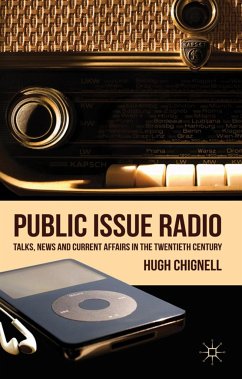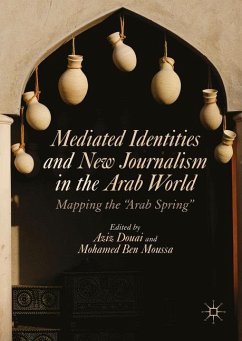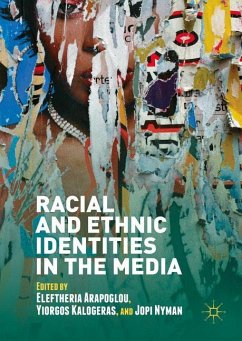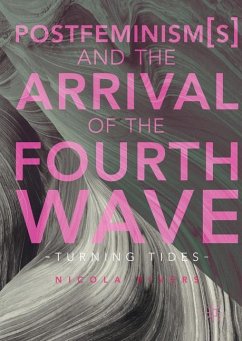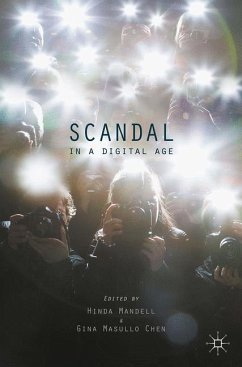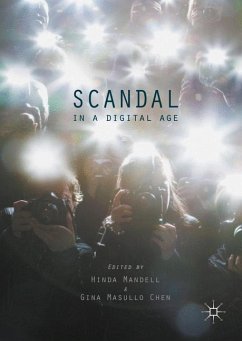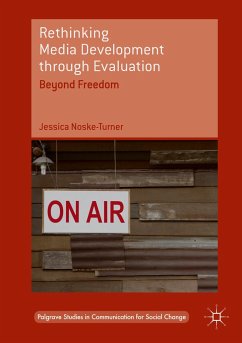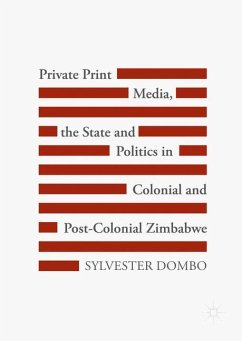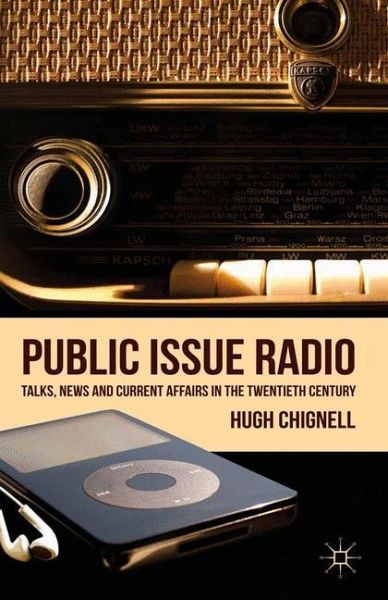
H. Chignell
Broschiertes Buch
Public Issue Radio
Talks, News and Current Affairs in the Twentieth Century
Versandkostenfrei!
Versandfertig in 6-10 Tagen
Weitere Ausgaben:

PAYBACK Punkte
19 °P sammeln!





Based on original and previously unseen written and sound archives and interviews with former and current radio producers and presenters, Public Issue Radio addresses the controversial question of the political leanings of current affairs programmes, and asks if Analysis became an early platform for both Thatcherite and Blairite ideas.
HUGH CHIGNELL is Assistant Director of the Centre for Broadcasting History Research at Bournemouth University, UK, and specializes in the history of radio. His published work has examined current affairs radio and radio theory, and he has played an active role in the acquisition of broadcasting archives and making them available for other researchers.
Produktdetails
- Verlag: Palgrave Macmillan / Palgrave Macmillan UK / Springer Palgrave Macmillan
- Artikelnr. des Verlages: 978-1-349-31987-9
- 1st ed. 2011
- Seitenzahl: 260
- Erscheinungstermin: 2. September 2011
- Englisch
- Abmessung: 216mm x 140mm x 15mm
- Gewicht: 332g
- ISBN-13: 9781349319879
- ISBN-10: 1349319872
- Artikelnr.: 45074307
Herstellerkennzeichnung
Springer-Verlag GmbH
Tiergartenstr. 17
69121 Heidelberg
ProductSafety@springernature.com
'Hugh Chignell should be commended on an excellent book. The arguments and interpretations are carefully balanced and judiciously expressed, and there's an excellent mix of the synoptic treatment of published scholarship in the field and Dr Chignell's own original research. Case-studies about Analysis, File on Four and IRN news coverage (all contextualised through some fascinating and gripping detail on Thatcherism and Third Way politics) give added value to the book as a piece of original scholarship. This is an important contribution to the field and a real pleasure to read.'
- David Hendy, University of Westminster, UK
'Hugh Chignell has done radio history a great service by providing a lively and insightful overview of radio news and current affairs in this highly readable account.'
- Michele Hilmes, University of Wisconsin-Madison, USA
'Public Issue Radio: Talks, news and Current Affairs in the Twentieth Century, tells an important storyabout the development of the world's most famous cultural institution. And it tells it in a highly readable way, linking the institution's transformations to the turbulence of the century in which it developed and which it was obliged to understand and explain to Britons and, to some extent, the rest of the world. it is a worthy addition to the growing shelf of recent work on the cultural import of the BBC...' -Reviews in History
- David Hendy, University of Westminster, UK
'Hugh Chignell has done radio history a great service by providing a lively and insightful overview of radio news and current affairs in this highly readable account.'
- Michele Hilmes, University of Wisconsin-Madison, USA
'Public Issue Radio: Talks, news and Current Affairs in the Twentieth Century, tells an important storyabout the development of the world's most famous cultural institution. And it tells it in a highly readable way, linking the institution's transformations to the turbulence of the century in which it developed and which it was obliged to understand and explain to Britons and, to some extent, the rest of the world. it is a worthy addition to the growing shelf of recent work on the cultural import of the BBC...' -Reviews in History
Für dieses Produkt wurde noch keine Bewertung abgegeben. Wir würden uns sehr freuen, wenn du die erste Bewertung schreibst!
Eine Bewertung schreiben
Eine Bewertung schreiben
Andere Kunden interessierten sich für


